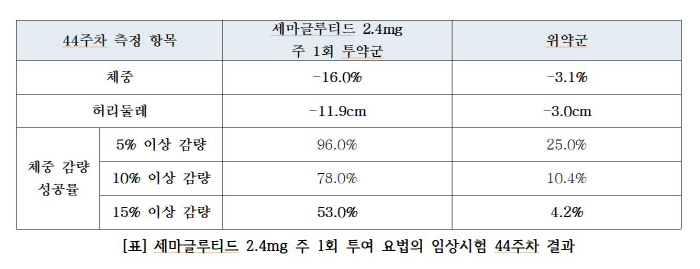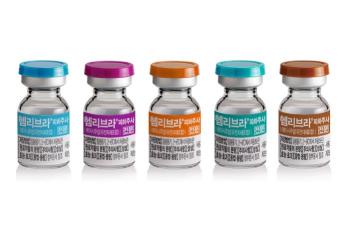Korean Clinical Results of Obesity Drugs, Weight Loss by 16%...Any side effects?
Sep 02, 2025
|
The Korea-Thailand international joint research team, led by Lim Soo, a professor of endocrine metabolism at Bundang Seoul National University Hospital, said that non-diabetic obese adults who injected 2.4mg of semaglutide once a week lost 16% of their average weight for 44 weeks, and their waist circumference also decreased by 11.9cm.
This study is a late phase 3 (phase 3b) clinical trial involving 12 Korean and Thai organizations, and was conducted to verify △ group characteristics △ dose △ usage △ indication △ effect in accordance with the actual medical environment after phase 3 (phase 3a) for drug approval.
The characteristic of this clinical trial is that the obesity standard was set at 'body mass index (BMI) of 25 kg/㎡ or more' used in East Asian clinical sites, and the subjects were selected accordingly. The clinical trials conducted before are limited in applying them directly to domestic and Asian treatment sites, as they meet the Western standard BMI of 27 or 30 or more.
|
As a result, the semaglutide administration group showed a 16.0% decrease in average weight at 44 weeks of the clinical trial, showing a big difference from the placebo group (3.1% decrease), and the waist circumference decreased by 11.9 cm, clearly confirming the effect of improving abdominal obesity. In addition, the percentage of successful weight loss of 15% or more was only 4.2% in the placebo group, while in the medication group, it was about 12 times, or 53.0%.
In the safety assessment, 89.1% of the semaglutide group complained of gastrointestinal symptoms such as nausea, constipation, and diarrhea, but 77.6% of adverse reactions were observed in the placebo group, and there was no significant difference between the two groups. The researchers explained "The adverse reactions were mostly predictable gastrointestinal symptoms, and did not deviate from the range reported in conventional GLP-1 drugs.".
Professor Lim Soo said, "This study is the first randomized controlled clinical trial conducted with subjects with a BMI of 25 or higher, the East Asian obesity standard. Unlike Westerners, where high obesity is common, semaglutide 2.4 mg once a week therapy is an effective and safe treatment option for Koreans and East Asians with many obese patients with relatively low BMI."," he said.
He continued "As obesity standards used in actual clinical settings have been applied, they will be used as an important basis for preparing medical guidelines and insurance policies."
Meanwhile, Professor Lim Soo oversaw the phase 3a clinical trial in East Asia in 2022 before semaglutide drug treatment was introduced in Korea and reported the effectiveness and safety of the drug.
|
This article was translated by Naver AI translator.
















